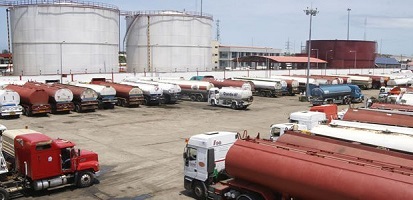The Nigerian National Petroleum Company (NNPC), has intensified its petrol supply commitment in a bid to avoid fuel scarcity in the country.
Following the discovery of methanol in over what suppliers estimated to be over 100 million litres of petrol, queues have returned to filling stations, which signaled fuel scarcity.
However, even though the NNPC has enough petrol to supply, it has been directed to urgently address the shortage of the commodity, which may drag till the weekend.
In a statement in which the state-owned oil and gas company was directed, the Nigerian Midstream and Downstream Petroleum Regulatory Authority (NMDPRA) disclosed that the adulterated petrol has been isolated and may be returned to the supplier.
“To ensure vehicular and equipment safety, the limited quantity of the impacted product has been isolated and withdrawn from the market, including the loaded trucks in transit
“Our technical team in conjunction with the NNPC Limited and other industry stakeholders will continue to monitor and ensure quality petroleum products are adequately supplied and distributed nationwide.
“The source supplier has been identified and further commercial and appropriate actions shall be taken by the authority and the NNPC Limited. The NNPC Limited and all oil marketing companies have been directed to sustain sufficient distribution of petrol in all retail outlets nationwide,” the statement read.
Addressing concerns that the adulterated petrol doesn’t get to consumers, the National President, Independent Petroleum Marketers Association of Nigeria (IPMAN), Debo Ahmed said measures have already been taken to ensure that doesn’t happen.
“We’ve discussed with all our zonal and unit chairmen to tell their members not to sell the products. And some of the products that got to the depots were not released to the public.
“So on our part, we’ve taken that precaution and we are waiting for the PPMC to call the trucks back to evacuate the products. So the majority of the products are in the depots,” he said.














